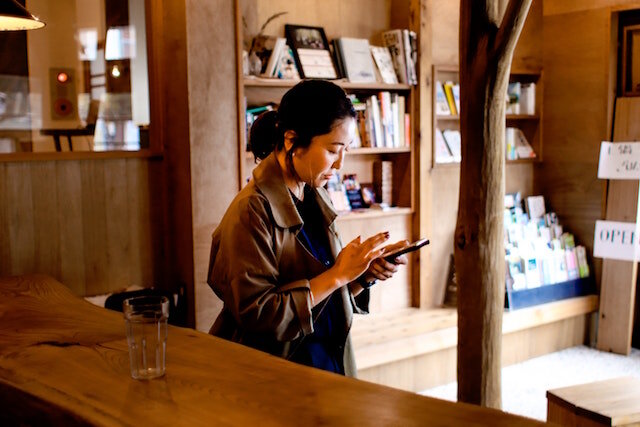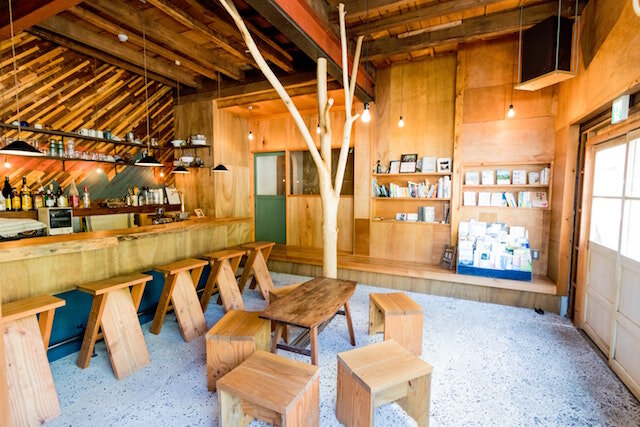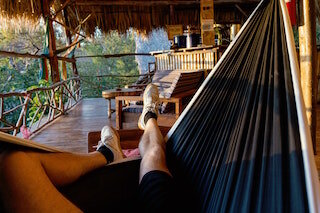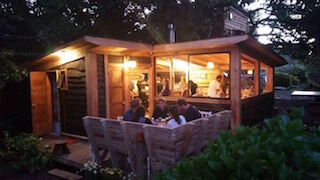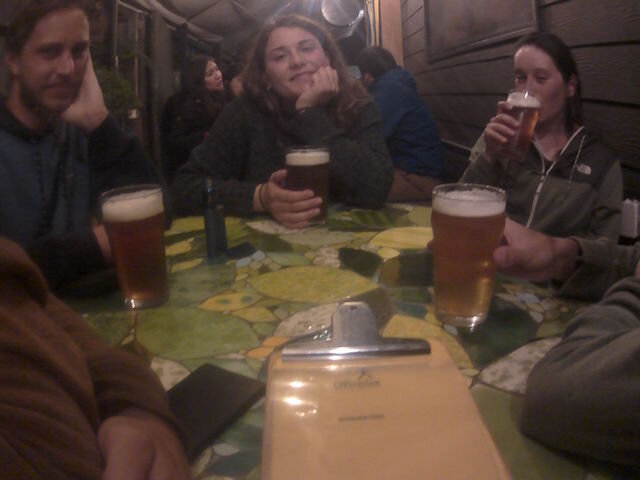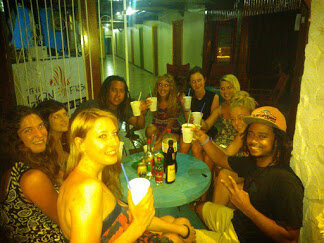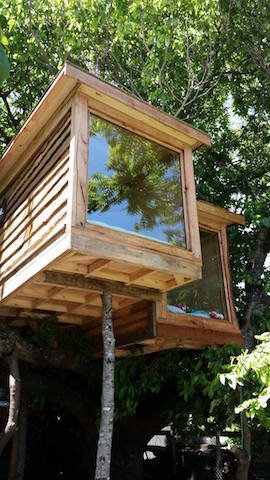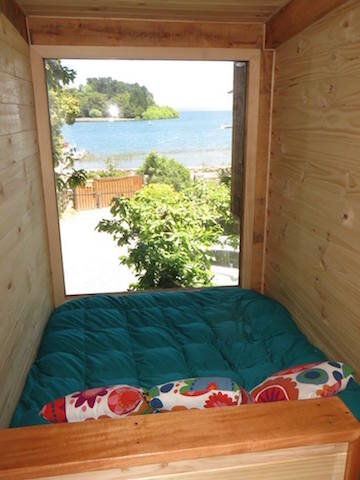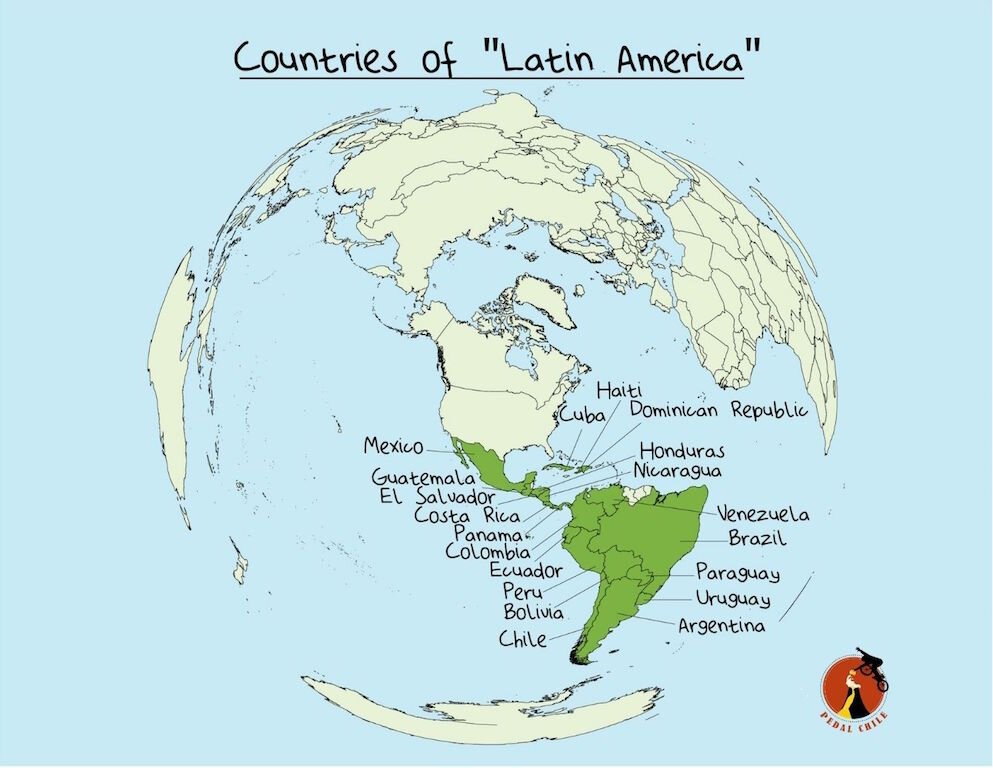What is a hostel?
A hostel is a form of budget lodging where backpackers and other travelers may rent a bed (usually bunk style) in a room with other travelers which includes ALL communal amenities, such as shared bathrooms, kitchen(s), and social gathering areas.
In a hostel, the main selling unit is a BED as opposed to renting a ROOM like in a hotel
Hostelers most commonly share a room with 4 to 8 fellow travelers. Shared rooms with up to 20+ beds are fairly common (pre-COVID)
Some offer meals, coffee, and planned activities/excursions
Besides the bedroom, all other facilities are also shared among the guests, including:
- Bathroom/shower
- Kitchen
- Social areas (i.e. TV room)
Hostel Vs Hotel
There are 3 primary differences between a hostel and a hotel:
Hostels provide a dormitory-style setting where you rent a bed instead of a room
Dormitory = shared = cheaper
With hostels, you share amenities, such as bathrooms, showers, kitchen, and social gathering areas
Hostels are designed around shared experiences and meeting fellow travelers as opposed to social isolation in your own hotel room.
Hostel Prices
Prices, along with meeting fellow travelers are the main reasons that tourists/backpackers stay at hostels.
Location is a key factor when choosing a hostel – if you are visiting a city for its sights, and you plan to stay out late into the evening in a bar or a restaurant, then choosing a hostel that is located close to the vibrant nightlife district would be a good idea.
This is especially true if you are unsure about walking alone back to a hostel after sunset. However, if you are planning a trip that involves exploring the wild jungle areas of South America and south-east Asia, then you would want to stay in hostels that are located in these areas.
Typical Hostel costs around the world (low end)
Australia: $40 USD per night
China: $7 to $35
Southeast Asia: $10 to $50
Western Europe: $18 to $60
Eastern Europe: $12 to $31
Africa: $8 to $45
South America: $5 to $35
United States of America: $25 to $45
Canada: $25 to $45
Central America: $10 to $30
High-season Vs Low-season & Cost
Keep in mind that prices can fluctuate dramatically between high-season and off-season (low season). A private room at a hostel in Phuket, Thailand in the off-season goes for under $15/day. This same room during peak season will go for over $60/night.
Average minimum hostel Price
age of Hostel Guests
“Millennials represent 70% of total hostel travellers”
A hostel is an informal environment targeted at young people, students, and backpackers. The average age of hostel guests is between 18 and 35 with most in their 20s and early 30s.
Hostel & Shared Rooms
They often consist of several beds or bunk beds within a shared dormitory room that can generally hold at least several people, and in some cases more than 20 travelers, at least before Covid.
I’ve personally been to hostels in Australia, Costa Rica, and Miami (USA) where I shared a room with over 20 fellow travelers. While in the Gold Coast of Australia, sharing a room with nearly 2 dozen “backpackers” cost me over $20/night.
Shared Facilities
Hostels include other shared facilities such as a common room, a kitchen, and a bathroom. Whereas some mid-range hostels may include a self-service breakfast and coffee, hostels are often run on a self-catered basis, although a basic breakfast may be provided.
Today, free WiFi is nearly standard in hostels, although some parts of remote villages will lack this basic amenity.
The majority of hostels tend to be specifically tailored toward backpackers and low-budget travelers and are great for socializing and meeting many other holiday-makers. Although often used for single-night stays, it is also quite common to spend two or more nights at a hostel. In highly touristy areas, its not uncommon to meet “backpackers” who have been “staying” at the hostel for months, and only leave once their travel visa expires.
Lu getting ready for Halloween in Patagonia
Book Ahead
In most cases, booking ahead is recommended, particularly if you are hosteling in North America, Europe, or in rather busy and popular (touristy) areas around the world, or in places where a big event such as a music festival is scheduled to take place.
You may also want to reserve a place in a hostel if you are aiming to stay overnight after a long day of traveling. However, you may be able to get a good deal if you turn up at a hostel without a reservation, and booking is not essential in every case.
Hostels are frequently found in many countries, including internationally-renown backpacking hotspots such as South America and Southeast Asia, but also in countries where traveling and accommodation costs are significantly higher, such as in many European countries.
“Party” Hostels
Another thing to consider is the social life – some hostels, particularly in areas of extreme tourism are frequented by young tourists looking to “meet-up” – these facilities market themselves as ‘party hostels’.
Party hostels cater to backpackers who are after nights of partying - The hostel bar, pool, lounging and socialize areas are common in these type of hostels, with many guests spending their entire trip in these accommodations.
However, if you are a traveler who likes to be up early in the morning fresh and ready for a full day of exploring, and you don’t welcome the idea of people stumbling into the dorm throughout the night, then you might want to avoid this type of lodging. There are plenty of hostels that have a curfew and quiet hours, which allow hostelers to enjoy an undisturbed (minus the snoring) night of sleep.
Read The Reviews
Before booking, read the reviews on third-party booking sites, like Hostel World. This will give you an idea:
The location
Facilities and amentities
Cloth laundering services
Is a towel included after showering?
Bike Rentals
Secured lockers
Book exchange
Loudness or quietness
Average age of guests
Wi-Fi speed
Although some hostel chains exist, every hostel is different – so it is advisable to check before planning to stop at a particular hostel. For starters, each hostel offers different facilities – not just the number of beds in each dormitory, but some include only mixed rooms, whereas others will have gender-separated dorms.
Private Rooms & Hostels
The private room in the Tree House at Chili Kiwi Hostel in Pucón, Chile (South America)
Due to growing demand from backpackers who are after a slightly more luxurious break, some hostels in recent years have started to include single-use basic rooms – a few of these even contain en-suite bathroom facilities. However, prepare to pay extra money for these as it’s not uncommon that these prices will approach or even surpass those of hotels.
Also, keep in mind that some places, such as Bali in Indonesia, don’t offer dorm-style lodging. Lonely Planet recommends that minimalist travelers should budget nearly $50 (41 Euro) per night in Bali, just to stay in a low-cost room. This makes backpacking these countries much more expensive, which is why Lonely Planet recommends a minimum daily budget of $80 (66 Euro) for Indonesia. I have male friends that actually shared a bed with random travelers in Bali, just so they wouldn’t ruin their traveling budget.
Final Thought
Hostel standards, including facilities and amenities, vary significantly from hostel to hostel. Although some hostels may only contain table-and-chair type facilities with a sofa or two, others contain nicely furnished lounges, bars, restaurants, barbecue areas, pools, billiards tables, and even private beaches.
Make sure you chat with other travels, read reviews, and look at pictures before booking. Also, if you are traveling in high season, I strongly recommend booking ahead of time. In theory, it’s great to be “free” with no plan while “backpacking,” but the reality is you will spend way more money and time looking for an open bed - all while staying in inferior places with a non-choice crowd.
Good luck and maybe we will meet in Chile’s Patagonia!
Valentina is a guide for Pedal Chile and is our resident badass. Valentina was born and raised in La Patagonia, which probably explains her affinity for adventuring. Valentina has traveled to over 100 countries and has lodged in hundreds of hostels.
Favorite season: Austral Summer
More articles from Pedal Chile
Related article: Cheapest countries in South America to visit. We rank all 13 of them in order.
References & Sources for “What is a hostel?”
Hostelgeeks. “What Is a Hostel? 12 Hostel Definitions 2021 (FINALLY the Right Answer).” Hostelgeeks.com, 12 July 2020, hostelgeeks.com/what-is-a-hostel-defintions.
Iaquinto, Benjamin Lucca, and Stephen Pratt. “Practicing Sustainability as a Backpacker: The Role of Nationality.” International Journal of Tourism Research, vol. 22, no. 1, Sept. 2019, pp. 100–107, 10.1002/jtr.2321.
Planet, Lonely. “Money and Costs.” Lonely Planet, www.lonelyplanet.com.
Shokoohyar, S. (2019) “Determinants of Backpackers’ Perceptions of Security? A WOM-based Approach”, e-Review of Tourism Research, 16(4).
Veríssimo, Medéia, and Carlos Costa. “Do Hostels Play a Role in Pleasing Millennial Travellers? The Portuguese Case.” Journal of Tourism Futures, vol. 4, no. 1, 9 Mar. 2018, pp. 57–68.




